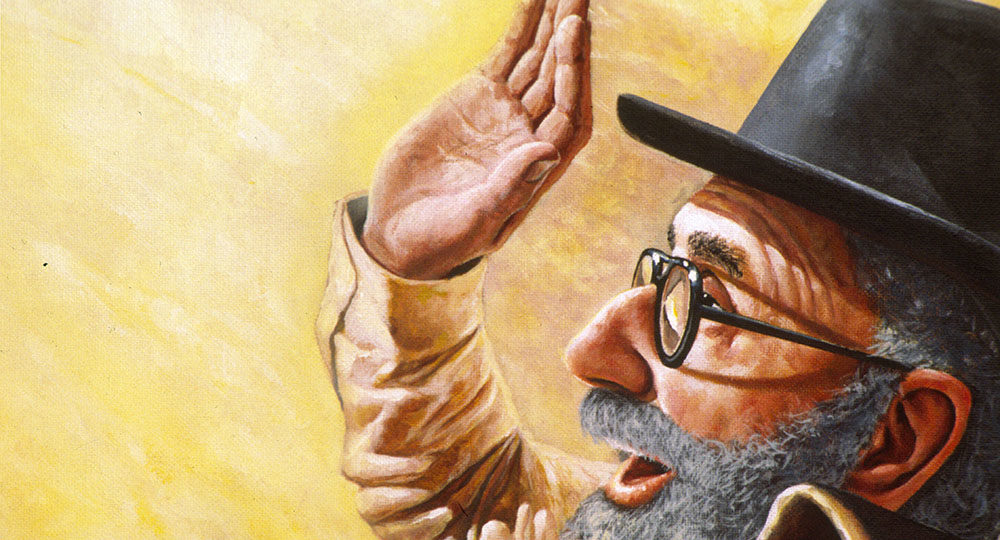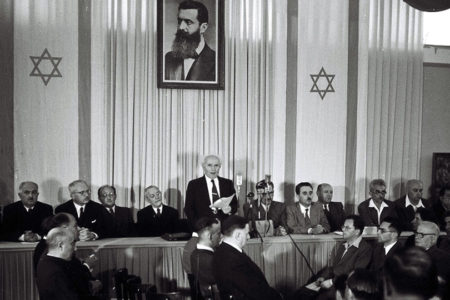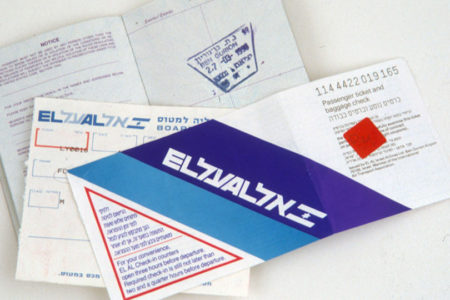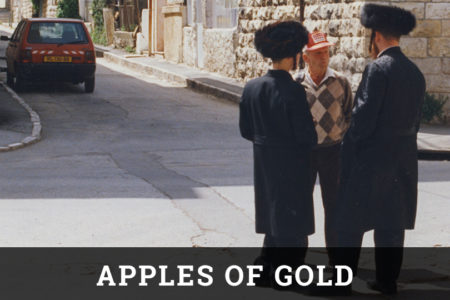Israel During the Messianic Kingdom Zephaniah 3:9–20
Just one short year ago, hope ran high that the decade of the 1990s would usher in world peace. The buzz words of the day were “Peace in our time.” With the sudden invasion of Kuwait by Saddam Hussein, such dreams came to a screeching halt. Instead of peace, the world braced itself for war in the Middle East. A war-wearied world fixed its eyes on Iraq, silently questioning whether world peace would ever become a reality.
Scripture is replete with prophecies declaring that world peace will become a reality—but not until Jesus Christ, “The Prince of Peace” (Isa. 9:6), returns to the earth to establish His promised Kingdom. With this hope in mind, Zephaniah penned his final message of encouragement to Judah. In graphic detail, the prophet described what it will be like for Israel and the world when the Messianic Kingdom becomes a universal reality.
Redemption in the Kingdom
Only those who have been redeemed will be able to enter the Kingdom age (Mt. 25:31–41). Scripture indicates that they will be given renewed speech: “For then will I turn to the peoples a pure language, that they may all call upon the name of the Lᴏʀᴅ, to serve him with one consent” (v. 9).
Some have interpreted the words “pure language” to mean that Hebrew will become the universal language in the Kingdom. They hold this view for four reasons. First, the Lord will be ruling from Jerusalem, the capital city of the world, where “they may all call upon the name of the Lᴏʀᴅ.” Second, because Jerusalem will be the city to which the nations will come to learn about and worship the Lord (Isa. 2:2–3; Zech. 8:20–23; 14:16), it is logical to assume that they will speak Hebrew. Third, the unity of language anticipates the fulfillment of Joel’s prophecy, which speaks of the Holy Spirit being poured out on all people (Joel 2:28–29) and may facilitate the spread of the knowledge of the Lord as predicted by Habakkuk (Hab. 2:14).1 Fourth, God confused the languages of the nations because of their pagan worship (Gen. 11). The curse of Babel, which divided people and caused their scattering, will be removed, allowing them to worship the Lord with one language.
Although this interpretation is held by many, it does not seem to be the meaning of verse 9. The word turn means to restore and refers to changing the nature of corrupt speech into a language that is pure. This means that the converted people who enter the Kingdom will be purified from their idolatry and blasphemy against God (Ps. 16:4; Isa. 3:8; Hos. 2:17). The promise of Joel 2:28–29 will be fulfilled when God pours out His Spirit on all flesh during the Kingdom age, which will produce a pure language but not a universal language.
The restored saints will be brought from afar to the land of Israel. The phrase “the daughter of my dispersed” refers to Jewish believers who will come from “beyond the rivers of Ethiopia” (v. 10). This includes the upper Nile region of southern Egypt, Sudan, and northern Ethiopia. In other words, God will bring Jews back to the land from the most distant areas of the earth.
After the rebuilding of the Millennial Temple, the Lord will reinstitute the sacrificial system. Both Jews (“the daughter of my dispersed”) and Gentiles (Ethiopians) will bring an offering to the Lord (v. 10). The offering (Heb., minchah) mentioned in this passage refers to the meal offering (Lev. 2).
Scripture clearly indicates that a Millennial Temple will be built during the Kingdom age, during which the worship of God will be implemented and animal sacrifices will be offered (Ezek. 40–46; cp. Isa. 56:7; 66:20–23; Jer. 33:18; Zech. 14:16–21).
The question is often raised, If Jesus’ sacrifice was the only efficacious, once-and-for-all sacrifice to expiate sin (Heb. 7:27; 9:12, 26), why should animal sacrifices, which could never take away sin (Heb. 10:4), be offered during the Millennium? It is true that the sacrifices in the Millennial Temple will not expiate sin, just as the Mosaic offerings could not. We must conclude, therefore, that these offerings will be memorial in nature, similar to the Church in this age keeping the Lord’s supper in remembrance of Christ’s death.
At the beginning of the Kingdom age, God will remove the shame of Israel. “In that day” the redeemed of Israel shall “not be ashamed” (v. 11). The sinful “doings” (lit., terrible deeds) that brought Israel to shame will be taken “out of [her] midst” (v. 11). Those who are proud and haughty will be purged out (v. 11) when God judges Israel (Ezek. 20:34–38) and the Gentile nations (Mt. 25:31–41) at Christ’s return. The Lord’s “holy mountain” (Jerusalem, v. 11) will be inhabited with only the righteous (Mt. 25:34).
The remnant of submissive people who “trust in the name of the Lᴏʀᴅ” are described as being “afflicted and poor” (v. 12). This does not mean that they are diseased and poverty stricken but humble in spirit. The attitude of pride and arrogance will be removed from those residing in the land, and their appearance will reflect a serene trust in God.
Holiness will characterize the redeemed sinner. His conduct will be upright, for he “shall not do iniquity” (v. 13). He will not practice fraud or double dealing in his relationships with others. His conversation will be pure; he will not “speak lies, neither shall a deceitful tongue be found in [his] mouth” (v. 13). The word lies probably refers to religious lies associated with idolatrous worship, which characterized the false prophets. The cleansed remnant will be comforted: “for they shall feed and lie down, and none shall make them afraid” (v. 13). The redeemed of Israel are compared to a flock of sheep who are led and tended by the Lord, their Shepherd (cp. Mic. 7:14). They will no longer be afraid of the oppressor who comes to destroy them, for they will lie down in security and comfort and feed on the truth and righteousness provided by the Lord (v. 13). Here is seen the fulfillment of promises made in the Shepherd Psalm (Ps. 23).
Rejoicing in the Kingdom
The redeemed are encouraged to rejoice in song at the news of their deliverance. They are to “Sing … shout … be glad and rejoice with all the heart” (v. 14). Notice that three names are used for Israel in calling the nation to rejoice in song: daughter of Zion, Israel, and daughter of Jerusalem (v. 14). This is a personification of the twelve tribes of Israel who will once again be united in the land during the Kingdom age (Ezek. 37:15–22; 47:13–48:7).
Israel’s rejoicing will be centered in Christ’s return, because “The Lᴏʀᴅ hath taken away [her] judgments” (v. 15; cp. vv. 1–7). Judicially, Israel had been sentenced for her crimes against God and mankind. She had been doubly disciplined for her sins (Isa. 40:2), and now the charges against the nation will be forgiven.
Israel will rejoice because the Lord has “cast out [her] enemy” (v. 15). Those nations who persecute Israel will no longer be a threat to her survival, for they will receive their judgment from the hand of God, especially those who come against Israel during the Great Tribulation (Zech. 14:2–3, 12–15).
Israel will rejoice because “the Lᴏʀᴅ, is in the midst” of her (v. 15). The return of Christ can be described as the personal, visible, physical return of the Lord to earth in power and great glory with His angels and saints in order to fulfill His covenant promises to Israel and the Church. What a great day of rejoicing that will be!
Israel will rejoice because the nation need “not see [fear] evil any more” (v. 15). During the Kingdom age, evil will not be openly manifested because Satan will be bound in the bottomless pit (Rev. 20:2–3) and Christ will reign on earth with “a rod of iron” (Rev. 12:5; cp. Ps. 2:8–9; Rev. 2:27). It will be a time when peace fills the earth (Isa. 66:12).
Israel will rejoice over the encouragement received from nations around the world, who will say two things to Israel: (1) “Fear thou not” (v. 16), or take courage, for your judgment is past, your enemies are destroyed, and the Lord, who dwells in your presence, guarantees your peace and security. (2) “Zion” should not let her “hands be slack” (v. 16), a sign of discouragement, despair, and lack of energy and productivity. There will be no need for such despondency and listlessness because the Lord will deliver them and provide peace, prosperity, and productivity (Isa. 65:21–24).
Restoration in the Kingdom
Zephaniah went on to provide Israel with a number of reasons why she should feel secure and comforted. First, the nation can take comfort in the presence of the Lord: “The Lᴏʀᴅ, thy God, [is] in the midst of thee” (v. 17). For centuries, Jewish people have taken hope and comfort in the promise that the Messiah will one day come and bring world peace, secure the land of Israel for them, and rebuild the Temple on its historical site in Jerusalem. Zephaniah assured Israel that Christ will one day be visibly present in His glorious person to fulfill all the promises He has made to the nation.
Second, the nation can take comfort in protection from the Lord, for He is “mighty; he will save” (v. 17). The Lord is the all-powerful one who will guarantee the preservation and deliverance of Israel from any person or peril that threatens the nation’s safety in the Kingdom age. One writer notes, Zephaniah described the Lord as Israel’s mighty gibbor, “valiant warrior,” yoshia, “who saves,” or “Who is victorious.” The picture brought before the reader’s mind was of Boaz (ish gibbor hayil, “mighty man of valor”), who redeemed Ruth from poverty and distress. In fulfilling the role of a kinsman-redeemer, he took her as his bride and rejoiced over her. She, on her part, entered into the “rest of his love.”2
The nation can take comfort in the pleasure of the Lord, for He will rejoice over the nation with joy (v. 17). His rejoicing is due to the spiritual return of the nation to a place of holiness as a chaste and comely bride (Isa. 62:5; Jer. 32:41; Hos. 2:19).
The nation can take comfort in God’s perfect love, for “he will rest in his love” for the nation (v. 17). The word rest means to be silent and denotes a love so deeply felt and absorbed in its object, with thoughtfulness and admirationm that it need not be demonstrated.3
The nation can take comfort in God’s praise over her, for He will “joy over [them] with singing” (v. 17). The Lord will not remain silent concerning His indescribable love for Israel and her renewed relationship with Him. He will sing with delight and joy, as one would sing in a day of festival, because His people Israel will be in the land enjoying Kingdom blessings promised to her (Isa. 65:18–19). This is also true of God’s love for His Church. He has loved His own to the end (Jn. 13:1) and takes great joy in them (Jn. 15:11).
Reassurance in the Kingdom
Zephaniah closed his prophecy on a note of reassurance to the nation of Judah. Although she would soon be destroyed by Babylon, God would not utterly forsake her because He is committed to the nation’s ultimate deliverance. He assured Israel of His love with seven I will’s in verses 18 to 20.
God cares for all Jewish people in the diaspora and says, “I will gather those who are sorrowful for the solemn assembly” (v. 18). These people have been exiled and are grieving because they are unable to attend their sacred feasts in Israel. They will be returned to Israel and will once again take part in these religious observances.
God said, “I will undo all that afflict thee” (v. 19). He will destroy those who oppressed Israel at the time of her deliverance. In the Abrahamic Covenant, God promised that He would “bless them that bless thee [Israel], and curse him [her enemies] that curseth thee” (Gen. 12:3). This promise has been fulfilled down through the centuries and will again be fulfilled when Christ destroys Israel’s enemies at His return.
God said, “I will save her that is lame, and gather her that was driven out” (v. 19). Those who are hurt, homeless, and helpless will be healed and given new homes within the promised land (cp. Isa. 35:56; 65:21–22).
God said, “At that time will I bring you again, even in the time that I gather you” (v. 20). The Lord repeated the promise that Israel would be gathered back to her land after the Great Tribulation in order to emphasize His commitment to accomplish this promise.
God said, “for I will make you a name and a praise among all peoples of the earth” (v. 20). Today, Israel is still a reproach among the nations of the world, as is evident from frequent action taken by the United Nations in their voting, as well as from national groups in Eastern Europe who continually persecute the Jewish population within their borders. But after Israel’s cleansing, “God will set [her] on high above all nations of the earth” (Dt. 28:1; cp. Dt. 26:19; 28:13), and the nations will praise her.
God said, “when I turn back your captivity before your eyes” (v. 20), then I will fulfill all the aforementioned promises. Israel will be blessed when Christ restores her at His Second Coming. One third of the Jewish population will survive the Great Tribulation and will become the “all Israel” mentioned in Romans 11:26 who will witness this taking place.
Amillennialists continually deny that these promises are yet to be fulfilled to a nationally restored Israel during the Kingdom age. But Scripture provides irrefutable evidence that such an interpretation of the biblical record is incorrect. The promise of Israel’s restoration and spiritual renewal is repeated over 140 times in Scripture.
The certainty of such a spiritual and physical restoration is guaranteed by the divine authority of the Lord, for Zephaniah concluded his prophecy with the words “saith the Lᴏʀᴅ” (v. 20).
When Zephaniah wrote his prophecy, a neo-Babylonian empire had risen to great power and was soon to destroy little Israel. Twenty-six hundred years later, little has changed. Another neo-Babylonian empire has emerged and once again threatens the annihilation of Israel. But this time it will not be successful; Israel will survive.
We are living in the latter days in which the nation of Israel is to play a strategic role, for she must be a sovereign nation when the Tribulation begins and after which she will enjoy the Kingdom blessings foretold by Zephaniah. The eyes of the world remain glued on the Middle East, and it seems certain that there will not be the “peace in our time” for which the world longs.
War will again come in the future. Jesus said there is coming a time of tribulation on the earth “such as was not since the beginning of the world to this time, no, nor ever shall be” (Mt. 24:21). He also warned those living during the time of the Great Tribulation to “be … ready; for in such an hour as ye think not the Son of man cometh” (Mt. 24:44).
ENDNOTE
- Cyril J. Barber, Everyman’s Bible Commentary, Habukkuk and Zephaniah (Chicago, IL: Moody Press, 1985), 119.
- Ibid., 124.
- C. F. Keil, Commentary on the Old Testament, Minor Prophets, Zephaniah, Vol. 2 (Grand Rapids, MI: Wm. B. Eerdmans Publishing Co., 1949), 161.
(Zvi’s daughter-in-law)
“My first impressions of Israel can be summed up this way: This is a land that no man or country can harm. Its walls and cities are not made by the hands of man but with the brick and mortar of God’s sovereign will. This is His land—and it is my land. In God I have put my trust. I shall not be afraid. What can mere Saddam do to me? (loosely translated from Ps. 56:4).”
JACOB
(a newcomer to Israel)
“More than 60 hours after we first received word that the Persian Gulf situation had yielded ‘Operation Desert Storm,’ my American staff and I turned in our gas masks and safely boarded the El Al 747 for our journey back to the United States. The plane was uncharacteristically quiet as we taxied the runway. Many sat with tear-filled eyes in disbelief. Most had not planned this journey away from their homes to safer shores. We had become victims of a man who lived more than 500 miles away. He had changed our lives and was now attempting to reshape our world.
Around midnight on January 17, my boss called from the United States, asking if there was anything he could do to help us. We spoke for a while, and during our conversation the first siren sounded. Saddam had begun to strike us with his SCUD missiles. My heart dropped, and I could scarcely breathe. I told him I had to hang up and then fled down the hall with my gas mask, banging on doors to awaken everyone and gather them in the shelter.
Inside the shelter, some people panicked, others put the gas masks on in tears, and still others, like myself, quietly followed the instructions and waited for the initial fear to pass.
After two days of intense negotiations involving the US State Department, the US Embassy in Israel, the local Jerusalem Consulate, and El Al Airline, our American staff members finally arrived at the airport in Tel Aviv for our flight to New York. I stood near the escalator, and for the first time I really cried. I watched as flight attendants came and took the hands of children who were being sent away by their parents. I finally had to turn away. I could not watch any longer.
People who entered the airport terminal checked the location of the shelter first, making sure they were prepared for a drill or siren. Infants were carried in the arms of one parent, while the other parent held the ‘plastic tube’ container in which to place the children when the sirens sounded. What kind of world is this? I thought. What crime did that child commit? The answer was, simply, He is a Jew!”
RANDY
(our US correspondent in Israel)








